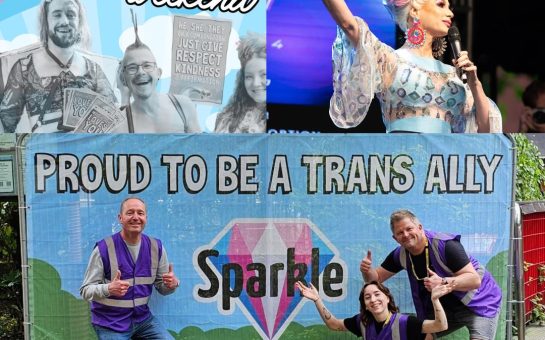LGBT History Month celebrated each February is a time when many within the community reflect on their shared experiences of fighting for equality.
In Manchester, the Gay Village on Canal Street serves as a focal point for most of the LGBT community in the city.
Due to the COVID pandemic, the street has largely been shut down and left empty.
But this bout of inactivity has not diminished the LGBT community’s passion and enthusiasm for the street’s bars and clubs.
A group of researchers from the University of Manchester have set up a website which allows people to share their memories of the Gay Village.
The website sets out a detailed history of the Village through hundreds of stories – coming from a variety of perspectives, whether they be young or old, gay or straight.
The project is being supported by The Economic and Social Research Council and North West Social Science Doctoral Training Partnership.
Mancunian Matters spoke to three of the researchers, Jessica Mancusco, David Dobson and Dr Amy Barron about their project.
Dobson, who’s studying a PhD in Sociology, said that some stories submitted to the site came from a time before the street was the popular tourist hot-spot it is today.
“This was back before it was known as the Gay Village.
“There’s a lot of shared experiences in that people came here to meet with people with these shared identities, so the data we have is quite rich in that sense.”
But in looking at the past, the memories also shed light on how many perceive the future of the Village.
Dr Barron, a Research Associate and Lecturer in Geography, maintained there are sustaining hopes that the Village will return to its former glory post-lockdown.
“There’s not a pessimistic outlook, but there is some concern.
“I think there’s some concern about the marketing of the village as a tourist attraction.”
The Village has been increasingly popular with non-LGBT people over the years, and this in turn has led to concerns being voiced by many that the street is losing its identity.
However, the street is enjoyed by gay people and straight people alike.
Dr Barron said: “We had a story from a woman in Canada, and her mother couldn’t even hold hands with her partner in public.
“So, to her, the Village was something special. That’s a rare story admittedly, but it just shows how we’ve had a range of stories from a range of people.”
Dr Jessica Mancuso, a researcher in LGBTQ studies, says the project has opened up conversations about the issues at work within the Village – and within the LGBT community at large.
“There’s been a lot of submissions about transphobia, and ageism.
“In terms of going forward, they want the Village to be more representative and more inclusive.”
The project is still running, and anybody is welcome to contribute their own memories or thoughts about the Village.
Head over to https://mcrvillagestories.manchester.ac.uk/ if you’re interested in taking part.


